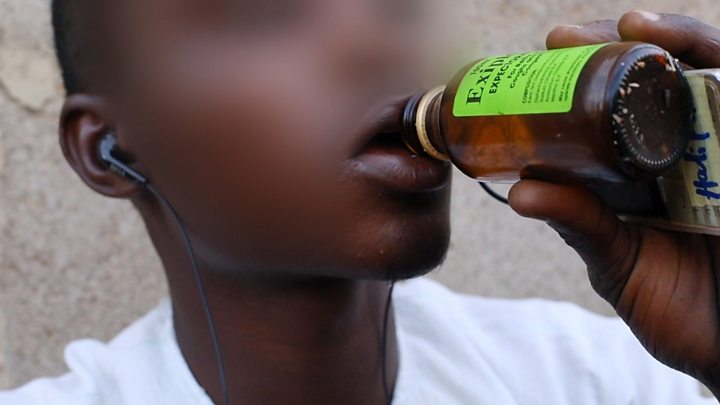The day his wife walked out 10 years ago, Nigerian musician Jagunlabi started taking drugs to make the shadows go away.
The drugs came to stay.
Today, after suffering a heart attack, Jagunlabi is desperate to end his addiction but has no idea how to get help.
“I don’t know where to go, I can’t trust (rehab) centres here,” sitting in a park in the nation’s economic capital Lagos. “They can chain you, molest you.”
Substance abuse in Africa’s most populous country has been described as an “epidemic” by the United Nations but there is almost no proper treatment available for those trying to recover.
The grim problem has come to light after a string of raids on so-called rehabilitation centres where hundreds of inmates, mainly men and boys, have been found chained and abused in atrocious conditions.
The unregulated institutes — billed as Islamic schools or run by evangelical churches — are used by desperate families who often send relatives struggling with drugs, drink or mental illness in the hope they will get better.
But the treatment is brutal and relies more on prayer than proven medical interventions.
Jagunlabi, who gave only his stage name, recounted how his family had tried to take him to a religious camp just two days earlier.
“A week of prayer and fasting… it would kill me. I’m too weak,” he said.
Once a successful performer who has now seen his career destroyed by addiction, he showed off newspaper clippings about his music from the early 2000s.
“I used to be big,” he said. “I need medication, I need to sleep”.
The scandal over the abusive centres — dubbed “horror houses” by the media — has put pressure on the authorities.
President Muhammadu Buhari insisted “no responsible democratic government would tolerate the existence of the torture chambers” and officials have sought to close the worst of them.
But moves to clamp down on the facilities have had mixed results.
In the city of Kano, in mainly Muslim northern Nigeria where most of the abusive institutes have been uncovered, many relatives have refused to pick up those freed from the centres.
Part of the problem is they have nowhere else to take them.
Across Nigeria, a vast country of almost 200 million people, there are only some 300 psychiatrists, Human Rights Watch (HRW) said in a report in November.
Many psychiatrists, discouraged by the lack of resources and status, leave left the country, mostly for the West.
Times are tougher, more challenging for everybody.
Life is particularly hard in Lagos surburbs, an impoverished and violent area of Lagos, where crack cocaine and bottles of codeine cough syrup circulate alongside illegal firearms.
Many other illicit substances including Cannabis, ecstasy, cocaine, codeine, tramadol are sold openly.
Already at midday, teenagers, old men and young mothers can be seen smoking marijuana as they try to cushion the come down from their latest trip.
There are areas called the “drug ghetto” by locals that are no-go zone for the authorities.
Drug abuse is one of the major causes of insecurity ravaging the nation; hence the need to strategise means to tackle its menace.
This is a clarion call on Civil Society Organisations (CSOs), health workers, parents, teachers and religious leaders to continue to complement government’s effort in stemming the menace of drug abuse and illicit trafficking.

